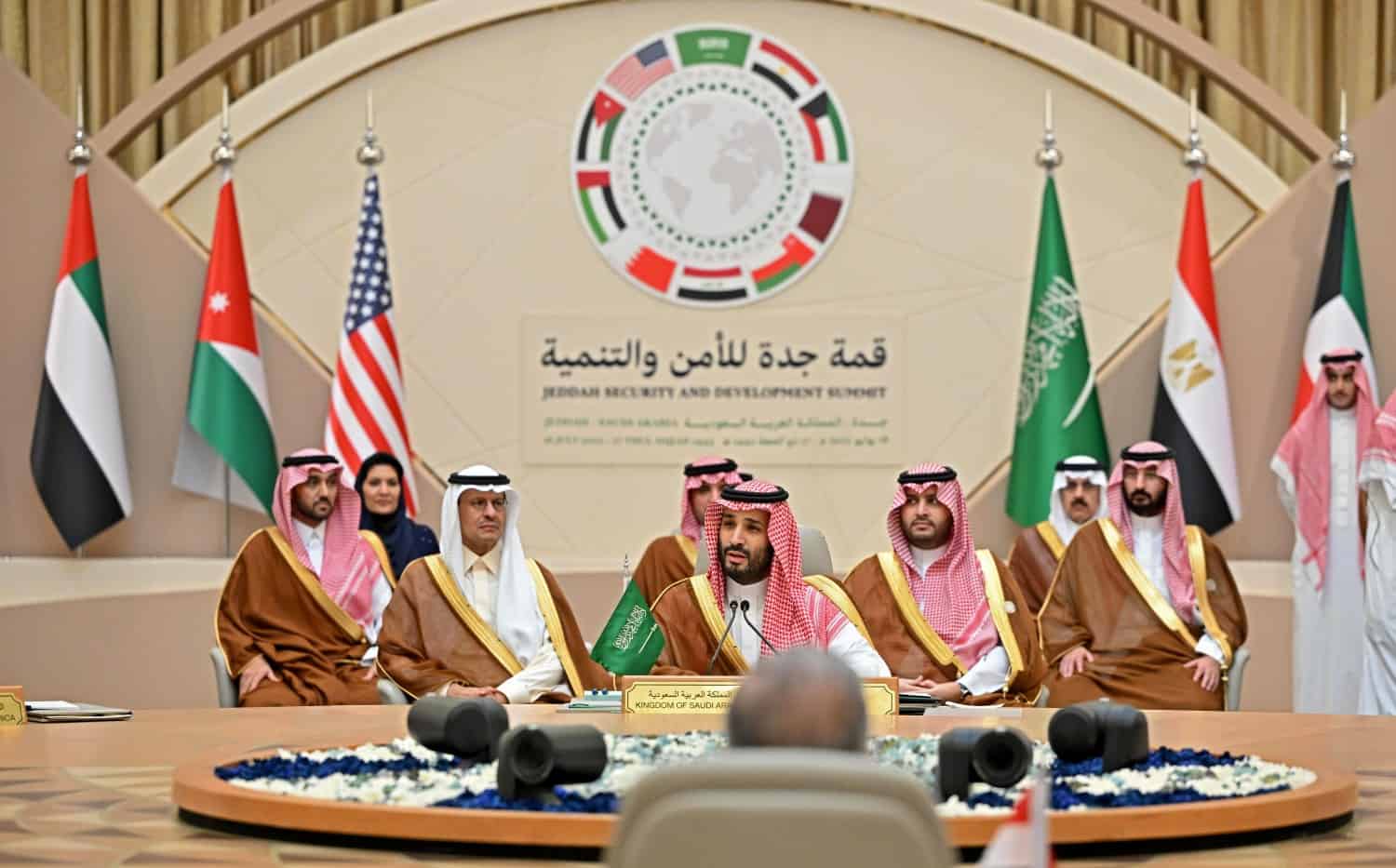Saudi Crown Prince Mohammed bin Salman warned Saturday that “unrealistic policies” to curb emissions could fuel inflation, as he chaired a summit bringing together Arab leaders and US President Joe Biden.
The kingdom is the world’s largest crude exporter, but Prince Mohammed has tried to make environmentally friendly policies a centerpiece of his reform agenda.
Last year, Saudi Arabia pledged ahead of the COP26 climate change summit to achieve net zero carbon emissions by 2060.
“Adopting unrealistic policies to reduce emissions by excluding major sources of energy will lead in the coming years to unprecedented inflation and a rise in energy prices, while increasing unemployment and exacerbating serious social and security problems,” Prince Mohammed said.
Energy policy has been a key component of Biden’s first Middle East tour as president.
Washington wants Riyadh to open the oil floodgates to bring down soaring gasoline prices, which threaten Democratic chances in November mid-term elections in the United States.
After meeting with Saudi leaders Friday, Biden said he was “doing all I can” to increase the oil supply but added that concrete results would not be seen “for another couple weeks”.
Prince Mohammed said Saturday the kingdom would “play its role in this field”, reiterating a pledge made in May to ramp up daily oil production capacity by more than one million barrels to exceed 13 million barrels by 2027.
With increasing urgency to limit global warming, experts warn of the need to reduce fossil fuel use.
Saudi officials dispute that their policies are in conflict.
“We will continue to advocate increased capacity. We will also continue to advocate… reducing emissions,” Saudi Economy Minister Faisal Al-Ibrahim said at the World Economic Forum in Davos in May.
“These two points do not contradict each other. The last thing we want is focusing on climate change without focusing on energy security,” he said.








